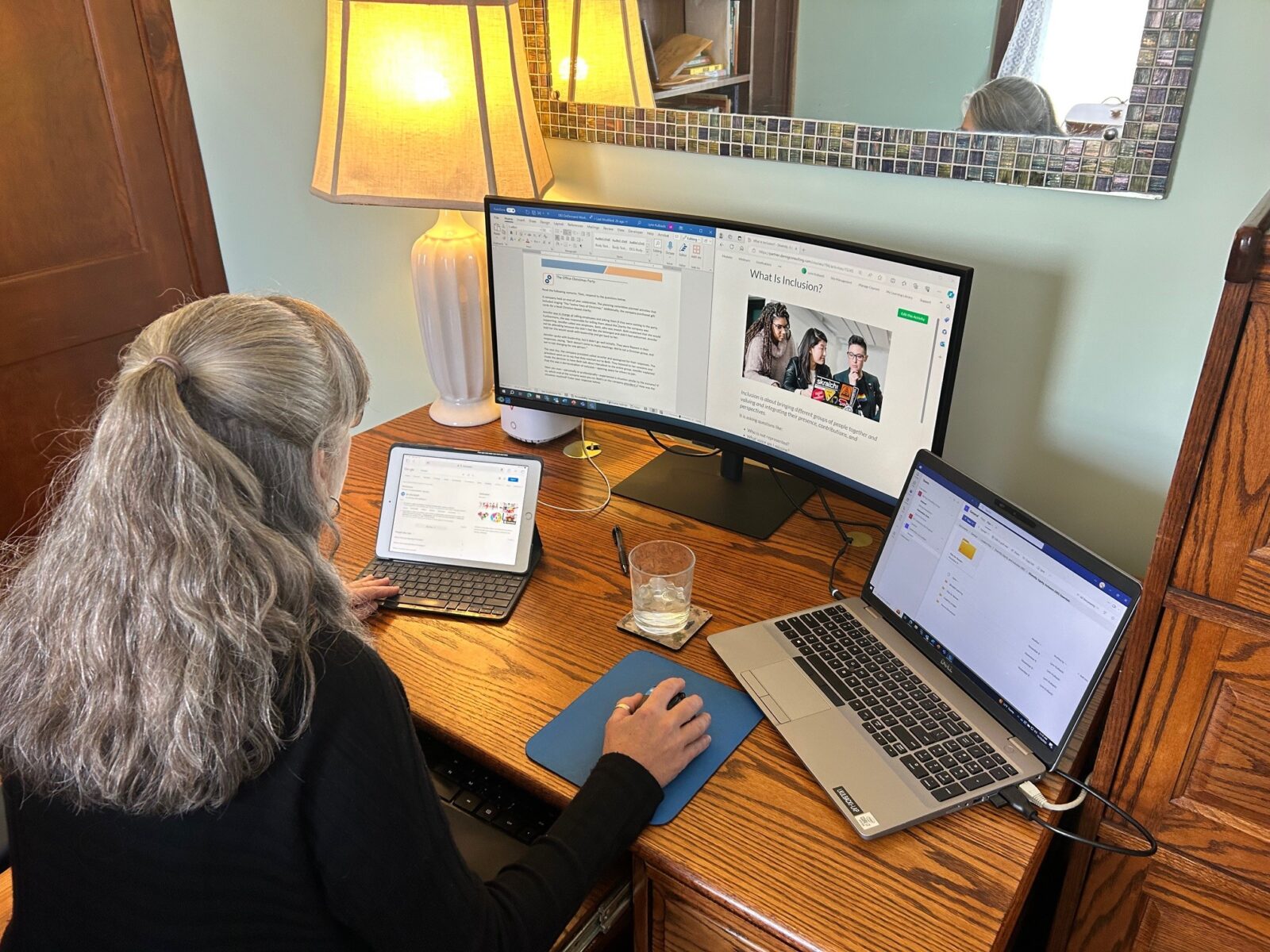At Dering, we continually focus on fostering a learning environment that is safe for all learners to explore concepts, interact with fellow participants and receive guidance from our experienced instructors, facilitators and subject matter experts. Learning in the virtual environment should not present any exceptions to this focus. For this reason, we ask all learners in our virtual environments, whether synchronous or asynchronous, to commit to fostering this same feeling of intellectual trust and safety. The guidelines identified in this virtual learner agreement are designed to create such an environment.
To demonstrate your commitment, please review all items in this virtual learner agreement and complete the form.
HSOA Registration
Trust and Safety Terms of the Virtual Learner Agreement
Dering OnDemand is based on a set of values centered around the exchange of ideas. We are committed to empowering highly knowledgeable everyday experts to provide an interactive learning experience for a community of engaged learners.

Who Forms Our Community?
Dering OnDemand is based on a set of values centered around the exchange of ideas. We are committed to empowering highly knowledgeable everyday experts to provide an interactive learning experience for a community of engaged learners.
Learners
Our students come to Dering OnDemand to have an engaging learning experience where they have access to a variety of topics from experts who practice these skills on a daily basis.
Instructors
Our instructors, both employees and partners, are passionate about education. They come to Dering OnDemand because of the opportunity to impact the professional lives and performance of others, and for access to the tools, platform, and coaching that enables them to create high-quality learning experiences.
What are the Guidelines?
1.) Confidentiality
It’s essential that participants feel safe to discuss anything and everything related to the topics/concepts presented. Information discussed in the discussion boards and live, virtual sessions will be kept confidential except as otherwise authorized by learner. When responding to discussion threads and commenting on others’ responses…
- No Names – If you use a discussion thread to post a situation you may be experiencing in order to get feedback, please do not use actual names, organization titles/roles, or any other identifier information.
- Be Conscious of Offering Advice – Resist the urge to tell your peer what he or she should do or what you would do in that situation. Lasting commitment rarely comes when someone tells us what to do. Your peer is much more likely to commit to change once he or she makes the decision.
- Security – Learner will have 24/7 access to program content through the secure online platform provided. This personalized access will include an expectation that the learner manages their own platform password and does not share this with anyone.
2.) Don’t spam
Students come to Dering OnDemand to have a safe and engaging learning experience and instructors teach for the love of sharing knowledge. Once you’re on the Dering OnDemand platform, don’t try to sell other products or spam each other with requests and offers.
3.) Don’t game the system
- For instructors: Don’t direct Dering OnDemand students away from the Dering OnDemand platform, push the envelope on what is and is not allowed, or search for loopholes in policies. We want our community of students to grow, as does every other instructor. When you game the system, the whole community loses out on having a common pool of engaged students who want to learn.
- For learners: Don’t harass instructors, ask for free coupons, or offer reviews in exchange for things. The community relies on a healthy interaction between students and instructors, as well as honest student feedback to understand which courses are right for them.
4.) Keep it professional
Our instructors and learners actively collaborate and communicate with each other, and have healthy and vibrant discussions through the course-taking experience. We ask that, in connection with those relationships, you are respectful, honest, and considerate with students, instructors, and Dering staff. Be a positive member of the Dering OnDemand community. Never ask for personal information, or post unoriginal content as your own.
5.) Recognize and respect diversity
One of the great beauties of virtual learning is that you can meet people from all parts of the world, as internet is a global medium. This means that while participating in an online discussion you and your virtual classmates may use the same language to communicate with each other, but the truth is that the cultural backgrounds, linguistic terminology, and abilities to express oneself in written language may vary significantly in an online learning environment. If your virtual classroom is a typical one, it will be ethnically rich and multicultural. This is why it is important to respect diversity and opinions different from yours, no matter where they come from. It is ok to disagree with a point of view, but it is definitely inappropriate to disrespect and be offensive towards others. Being open to different points of view is a sign of intelligence; furthermore, paying attention to alternative viewpoints is one of the greatest ways to learn. Needless to say, profanity, and racist, sexist, ageist, and religious comments are unacceptable, no matter how innocent or “funny” they may sound to you. On the other hand, if you are the victim of an insulting remark, try to maintain your calm and resist returning the offense. Rather, report the issue directly to your guide/instructor.
6.) Take your posts seriously.
Participating is the number one rule for online discussions but posting for the sake of posting wastes other people’s time. Always remember to add something new to the conversation and not repeat something that someone else has already said. Most importantly, stay on topic. Irrelevant tangents confuse your peers and make you seem that you don’t know what you are talking about; make sure that every comment you post stays within the scope of the online course material. If you are looking for simple social interaction with your virtual classmates, check if there is an off-topic discussion area in the online forum.
7) If you see something, say something
If anything you see or experience ever seems like a violation, or you are unsure about a policy, just let us know by emailing dering@deringconsulting.com. Someone on our team will review every report, answer your questions, and determine whether there has been a violation of our policies.

